[Bianculli here: The best TV comedy and drama series benefit from synergy, when their casts feature actors who are strong individually and superb collectively. Contributing critic Tom Brinkmoeller wonders why some of those actors never get lightning to strike twice...]

Will the M*A*S*H Syndrome Claim More Victims This Fall?
I have always thought of the problem as the M*A*S*H Syndrome: The collection of some of the best imaginable characters in one program, and the in-effect disappearance of the actors who played them once the series ends. Loretta Swit, Jamie Farr, Gary Burghoff, William Christopher and others, to varying degrees, ended up leaving our lives when they left their M*A*S*H characters.
No good character exists without good writing. Just as true, the best writing is flat and useless in the hands of a bad actor. I’'e always regretted these fine M*A*S*H actors never got teamed up with the high-talent behind-the-camera part of that mix again.
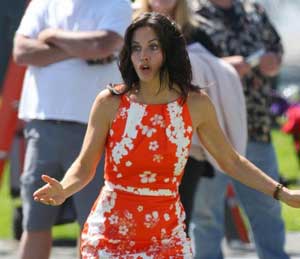
A new season looms in which a number of actors who won fans and awards in previously successful series (Kelsey Grammer, Patricia Heaton and Courteney Cox are some of the more stellar members of this pack) are going to try for it again. Not all good actors get this opportunity to shine anew. It made me think of characters viewers loved, who were brought to life by good actors, who we rarely got to see again, once the series they populated went away.
This has happened to the stars of other mega-hit series: The Cosby Show's special cast members didn't break out again; the six Friends stars may be set for life financially, but they're pretty much out of the lives of the people who helped them grow (Ms. Cox's new Cougar Town looks like a short-termer); all but one of Seinfeld's principals also are affluently out of sight.
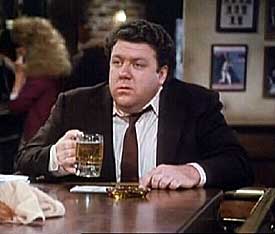
The tally sheets for Cheers and spinoff Frasier are mixed (Grammer's new Hank shows up lame at the starting gate). While a few actors have built off their hit series, others whose characters were key parts of the magic (George Wendt, John Ratzenberger, Jane Leeves, Peri Gilpin) didn't fare as well.
Sad that no one created similar chemistry after those series folded.
But really good actors who helped create memorable characters, only to evaporate, existed in lesser-rated series, too.
Ellen DeGeneres' mid-'90s sitcom owes a lot of its magic to supporting cast David Anthony Higgins (Joe), Joely Fisher (Paige) and Clea Lewis (Audrey).
Joe Regalbuto (Frank) and Charles Kimbrough (Jim Dial) were key players in the Murphy Brown success.
Same can be said for Night Court's Richard Moll (Bull), Charles Robinson (Mac) and Marsha Warfield (Roz).
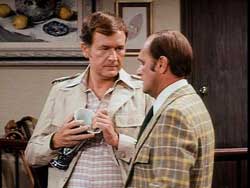
Go back farther and you can ask why Julia Duffy, who added an essential layer of wonderful goofiness to Newhart as Stephanie, never got the same comedy spotlight. Why didn't someone cast Bill Daily in a role as fun as his Howard Borden character in the earlier Bob Newhart Show?
Obscurity isn't always involuntary (a recent What Not to Wear revealed that Blossom star Mayim Bialik left show business to earn her Ph.D). Nor is it permanent. Jon Cryer, who was funny but overlooked in '89's The Famous Teddy Z, was "rediscovered" and now is an integral part of Two and a Half Men's success as Alan.
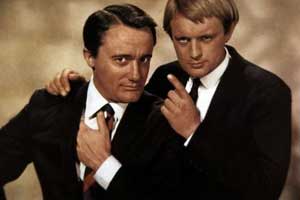
Also, David McCallum, who all but disappeared after creating the too-cool Illya Kuryakin character in The Man from UNCLE, is equally cool, though an older cool, in NCIS's medical examiner, Ducky. But they escaped the M*A*S*H Syndrome. And I wonder how many other actors would be doing good, high-profile work again, if they'd been given a spot in a high-quality production.
Any interest in adding to this list of unforgettable actors who, despite making TV watching worthwhile, fell off TV's schedule? Name a favorite -- or more.
--
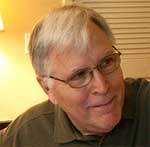
Tom Brinkmoeller always thought super-cool newspaper editors like Lou Grant's Art Donovan existed only in dreams. That had to be the serious career impediment, he thinks, for Jack Bannon, the actor who played him.